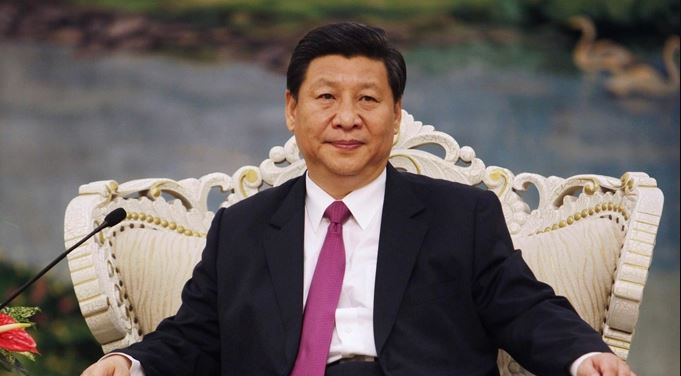Chinese Communist Party leaders have always had a secret fantasy – projecting themselves as unusually powerful. Mao Zedong, for instance, had taken a dip in the Yangtze River in 1966. CCP propagandists claimed that he swam 15 km in 16 minutes. The propaganda swim took place when Mao was in his 70s and tried to showcase his stronghold. Indeed, the swim was followed by the Cultural Revolution that claimed hundreds of thousands of victims.
But the fantasy of showing power continues and even the present Chinese President Xi Jinping is afflicted with this habit. Xi’s style of showing power is very different. He remains silent most of the time and lets his Ministers, Chinese government spokespersons and even the State-run media do most of the talking. Xi actually wants to come out looking like a man with tremendous foresight and someone who can outsmart most of his contemporary leaders.
In fact, you will notice how newer modes of communication are being propped up by the CCP. A couple of years ago, for example, not many people outside China knew about Global Times, a Chinese State-run publication that has also started serving as the Chinese Foreign Ministry overhang. Probably, even fewer people knew about Hu Xijin, the chief editor of Global Times.
Similarly, not many had heard of Chinese Foreign Ministry spokespersons Zhao Lijian and Hua Chunying. But these names are becoming popular in global media, as the paper dragon locks its horns with the West, Australia, India, Japan and the rest of the free world.
It is people like Hu Xijin, Zhao Lijian, Chunying and sometimes even Chinese Foreign Minister Wang Yi, who speak in derogatory language as a part of Beijing’s “wolf-warrior diplomacy”. It is they who threaten to invade Taiwan violently, describe Australia as the “gum stuck to the soles of China’s shoes”, spread fake news about Australian soldiers and threaten to pluck out the Five Eyes.
Also, the gulf between the CCP and informal Chinese sources like Global Times is shrinking rapidly. This means that the CCP is giving more space in diplomatic communication to the State-run media.
Meanwhile, Xi Jinping stays silent. The Chinese President does speak in official ceremonies and also addresses Chinese troops, but he never comes out condemning the US, India or Australia. He lets people like Hu Xijin and Zhao Lijian do that job.
The perception that Xi Jinping has tried to create is that he is too big a leader. And that diplomatic tussles with even the biggest of world powers don’t compel him to speak up.
Another perception that Xi Jinping wants to create and which unwittingly gets corroborated by sections of global media is that no one can predict what Xi will do. Global media has always created a false sense of stealth with Chinese actions and the Chinese President wants to maintain that. So, the message is that Xi will keep his cards close to his chest and will not reveal them at any cost.
And when Xi Jinping speaks, it is often in the form of a display of State power. For example, Xi asks the Chinese People’s Liberation Army (PLA) to be combat-ready, in order to show how the President of China can move into armed conflicts at will.
Finally, Xi Jinping is also moved by personal compulsions. Let’s admit it, Xi is not a good orator, unlike many other foreign leaders. While leaders like Narendra Modi, Scott Morrison, Emmanuel Macron and Vladimir Putin often get covered by global media for their powerful speeches, Xi has nothing to show in terms of oratory. Xi will be no well-tuned cymbal if he overspeaks.
Xi’s lack of speech is partly guided by his desire to show himself as more powerful than he actually is, and partly by his compulsion to hide internal defects.
Yet, Xi’s silence has not helped matters, as reality does get reflected sooner than later. Over the past one year or so, countries like India, Japan and Australia gave successfully challenged China’s hegemony. Earlier, former US President Donald Trump too managed to give a tough time to the Chinese President. And all of such events shattered the myth of a silent, invincible Xi Jinping.








